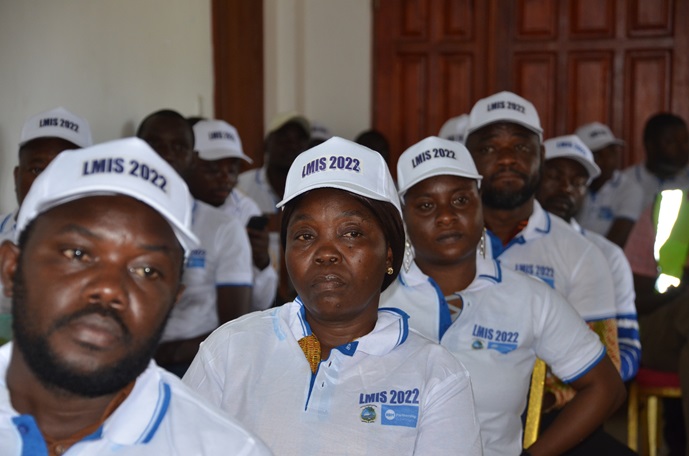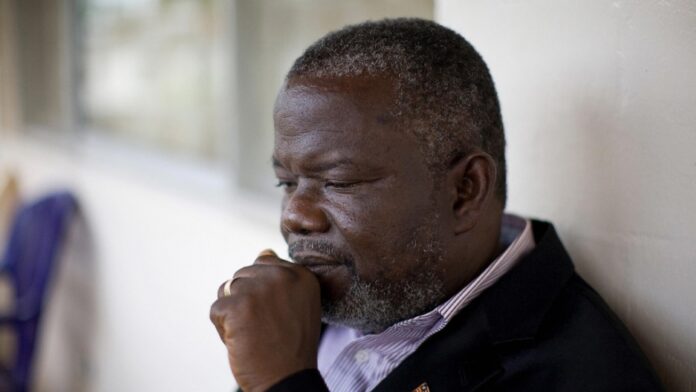LIBERIA – Malaria is still one of the lead causes of death in Africa; as such, investments in the control and eradication of malaria are key towards creating healthier and more affluent societies that can confidently contribute to achievement of the sustainable development goals.
Liberia has launched the 5th nationwide malaria indicators survey. The survey aims at tracking the country’s progress against targets set in the National Strategic Plan. The household survey will be essential in gathering information for the general public on important indicators of malaria prevalence, core malaria interventions such as ownership and use of mosquito nets, treatment of malaria in pregnancy, types of malaria parasites and tracking anemia prevalence among children aged 6-59 months. The survey will also analyze general public knowledge, attitudes, and practices in this area.
The guest of honor at the event, Dr. Peter Clement, WHO Country Representative in Liberia, applauded the Liberian government for attaining this milestone.
“Congratulations, Liberia, for this important milestone because malaria continues to challenge us and remains the main cause of illness and death in our communities. We must combat malaria with relevant tools and approaches that are evidence-based and that will guide the program with timely information that will trigger a paradigm shift in malaria interventions. The outcome of the survey will unearth cost-effective and innovative tools for malaria control and elimination in Liberia”, said Dr. Clement Peter, WHO Representative.
He further added that according to WHO’s latest World Malaria Report (2021), the picture looks gloomy on the disease burden, with an estimate of about 420 million cases in 2020 as opposed to 241 million cases in 2019; malaria-related deaths catering for 627,000 in 2020, an increase of 69,000 in the previous year, and at least 47,000 linked to disruptions related to the provision of malaria prevention, diagnosis, and treatment during the COVID-19 pandemic.
USAID’s Health Director and PMI Lead, Ms. Jessica Healey, acknowledged that the survey rollout is indeed a great milestone considering that the elimination of malaria is a critical development priority for the health sector and Liberia as a whole.
“Being here today gives me so much joy as the survey was postponed several times, first because of the DHS, then COVID-19. I’m also happy that from our routine health data, we are seeing a decline in the number of childhood malaria cases and related deaths. Furthermore, Liberia was the first country to launch a nationwide G2 mosquito nets distribution campaign in 2021, demonstrating significant progress. I look forward to the results from this survey”, said Ms Healey.
Speaking to the enumerators, the Hon. Minister of Health, Dr Wihelmina Jallah, emphasized the need for quality inputs from the team as the success of the survey highly depends on them.
“Let’s reach every home that has been earmarked in our 150 clusters, especially now that we are conducting microscopic tests as opposed to rapid tests for malaria. Over 2 million nets have been distributed in the past years; we need to check if they are being put to their intended use. We’re counting on you, our data collectors, for the success of the survey”, said Dr Jallah.
In his concluding remarks, Dr. Peter highlighted that Liberia will be introducing malaria vaccines for children under 5 years of age in 2023.
“In October 2021, the WHO recommended the introduction of the malaria vaccine among children in the region in areas with moderate-to-high malaria transmission, all in efforts to reduce the burden. The vaccine has been seen to significantly reduce malaria and its severe forms in children. The survey comes at an opportune time when Liberia plans to introduce the vaccines in 2023. The vaccines will be a game changer for children under the age of five” narrated Dr Peter.
The malaria indicators survey will be conducted across the nation in all 15 counties, and residents are encouraged to cooperate with enumerators as they collect data in the communities.
The African Region alone catered for 95% of malaria cases globally in 2020, with 96% of deaths occurring in children under the age of 5, who accounted for 80% of malaria deaths in the region. 4 African countries accounted for over half of the malaria deaths globally, namely Nigeria, the DRC, Tanzania, and Mozambique. The survey is being supported by various partners, including the US President’s Malaria Initiative, Global Fund, WHO, and others.







